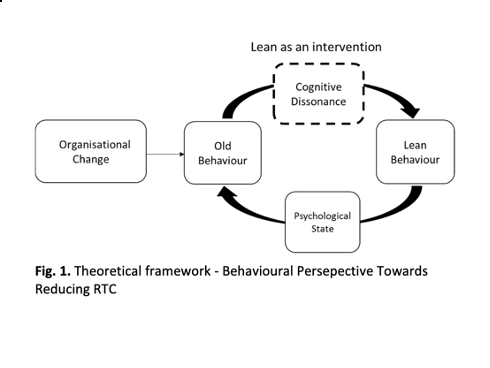Mediating Effects of Resistance to Change to Successful Lean Transformation
Keywords:
Resistance to change, Action research, Theory of cognitive dissonance, LEANAbstract
A Shipyard in Malaysia has been trying to change, but facing employee Resistance to Change (RTC). Resistance is attributed to the poor coupling of tasks to its technical core, creating bad habits leading to thoughtlessness and neglect. Lewin’s Field Theory and Festinger’s Theory of Cognitive Dissonance was used to understand and identify the underlying behaviour of the employees. Lean principles were used as an in-depth intervention to understand how context provoked or shaped reactions. A Dual Imperative Action Research (AR) with the author as a participant researcher was conducted not only to create knowledge but also, change. To position the Shipyard in its historical context, face-to-face interview was conducted with managers to get thick description of the RTC and archaic documentations was reviewed. A survey using tested questionnaire was conducted to gauge the employees RTC disposition. Resistance is due to incoherency of a person’s belief to establish standards, giving rise to cognitive dissonance. These dissonances hidden as non-conscious behaviour, social
habits or norms, lead the organisation to deterioration. Lean intervention reduce dissonance, creating psychological flow in the workforce and momentum for change. Thereby, the Shipyard managed to recover the delay of a ship undergoing a ship-life extension program and avoided liquidated damages amounting to RM63 million. The Shipyard also managed to reduce its average delay for ship repair from 17 to 6 months. The knowledge on how the researcher can gain utility from RTC and mediate through the application of Lean principles would be of considerable benefit to ‘change managers’.
Downloads



















